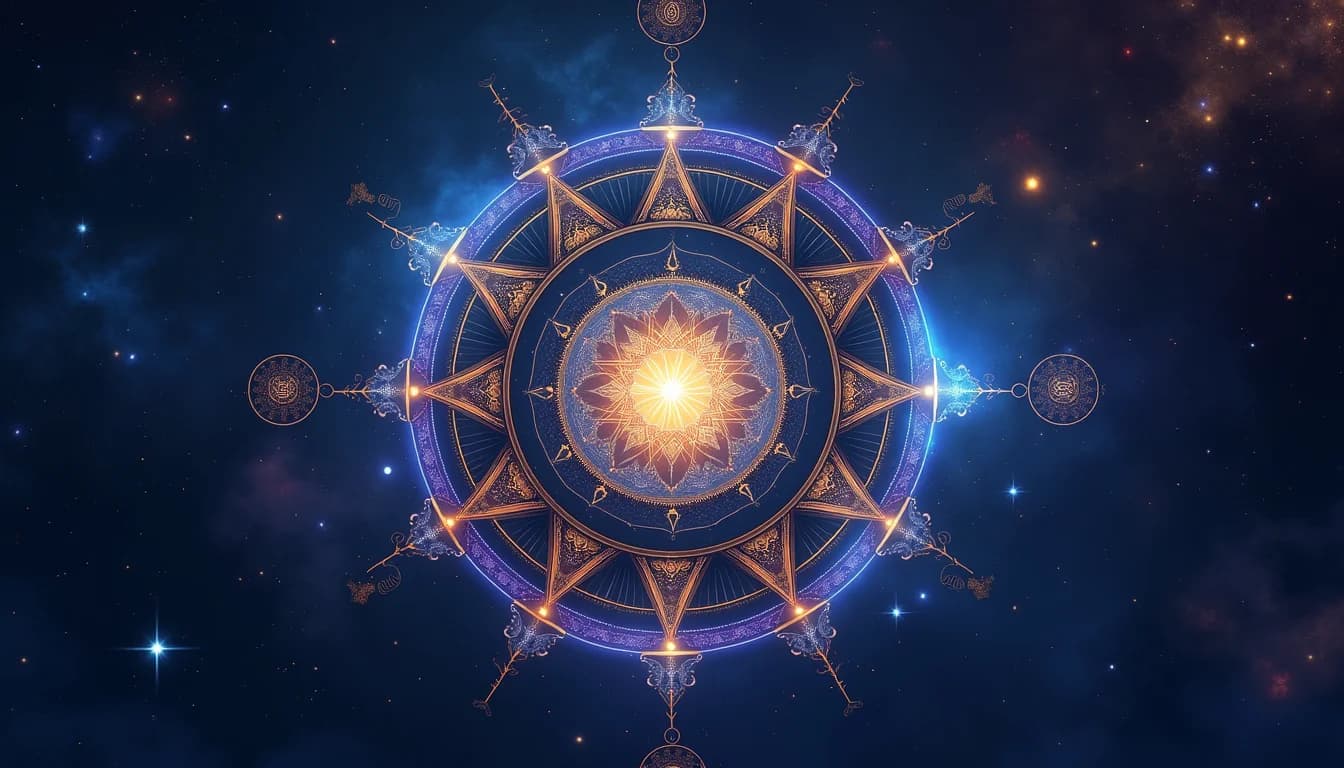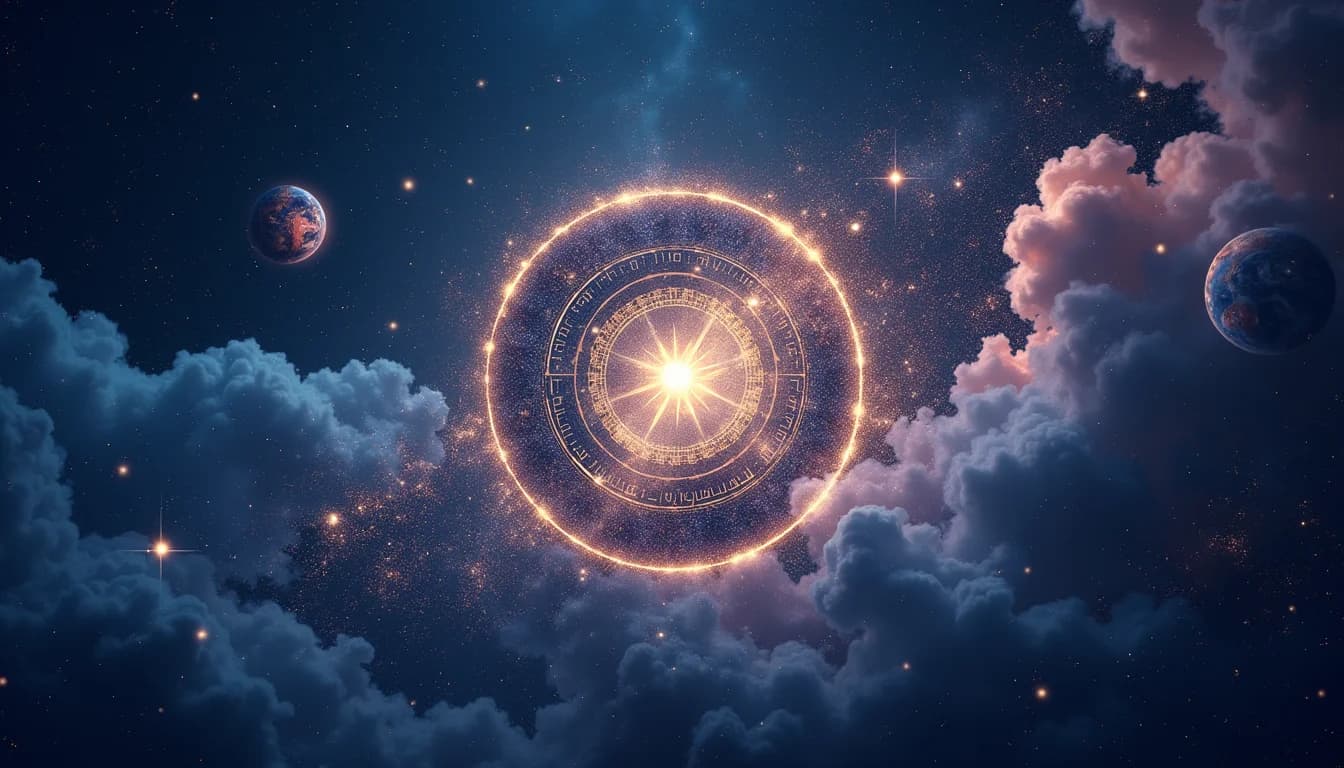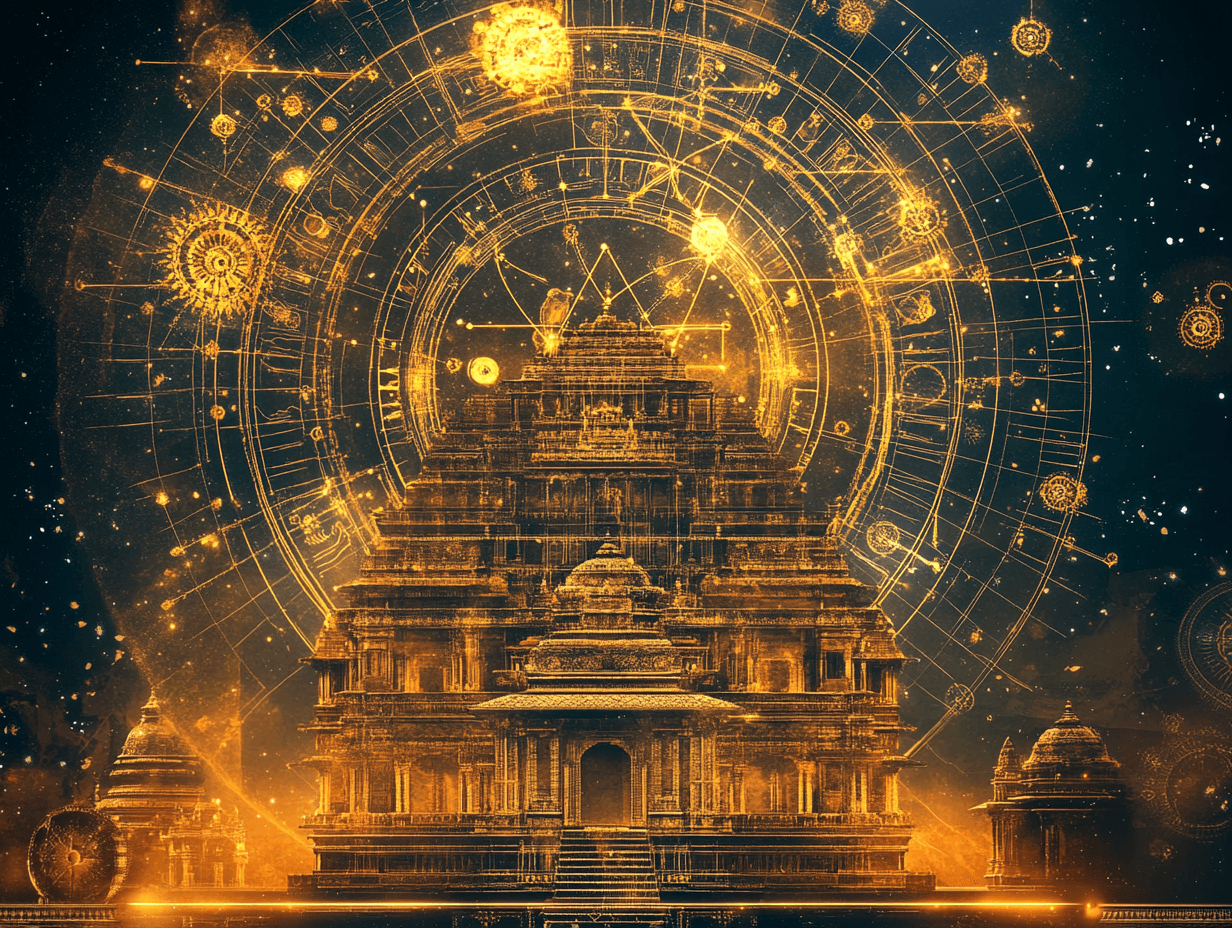Vedic Astrology: A Comprehensive Guide for Beginners
Vedic astrology, also known as Jyotish, is an ancient Indian system of astrology that has guided lives for thousands of years. Unlike Western astrology, Vedic astrology delves deep into cosmic influences, offering profound insights into our personalities, relationships, and life paths. In this comprehensive guide, we’ll explore the fascinating world of Vedic astrology, unveiling its mysteries and providing a solid foundation for your astrological journey.
The Origins and History of Vedic Astrology

Vedic astrology traces its roots to the ancient Vedic texts of India, particularly the Vedanga Jyotisha, dating back to around 1200 BCE. This celestial science was considered one of the six auxiliary disciplines essential for understanding the Vedas, the sacred Hindu scriptures. Over centuries, Vedic astrology evolved, incorporating influences from various cultures and refining its techniques through careful observation and analysis.
Key Principles and Fundamental Concepts
At its core, Vedic astrology is based on the principle that our lives are influenced by the positions and movements of celestial bodies. The fundamental concepts include:
Karma and Reincarnation: The belief that our past actions influence our present and future lives.
The Zodiac: A belt of constellations through which planets move.
Nakshatras: The 27 lunar mansions or asterisms used to divide the zodiac.
Planetary Periods (Dashas): Unique to Vedic astrology, these are time periods ruled by different planets that influence various aspects of life.
Vedic vs. Western Astrology: A Brief Comparison
While both systems share some similarities, there are key differences:
Zodiac System: Vedic astrology uses the sidereal zodiac, based on the fixed stars, while Western astrology uses the tropical zodiac, based on the seasons.
House System: Vedic astrology primarily uses the whole sign house system, whereas Western astrology often uses various house systems.
Emphasis: Vedic astrology places more emphasis on the Moon sign and Nakshatras, while Western astrology focuses more on the Sun sign.
The Importance of Birth Time and Location in Vedic Astrology

In Vedic astrology, precise birth details are crucial. The exact time, date, and location of birth are used to calculate the positions of planets and create a birth chart or "Kundli." This chart serves as a cosmic snapshot of the moment you were born and forms the basis for all astrological interpretations.
Planets, Houses, and Signs in Vedic Astrology: An Overview

Planets (Grahas)
Vedic astrology considers nine celestial bodies as planets:
Sun (Surya)
Moon (Chandra)
Mars (Mangala)
Mercury (Budha)
Jupiter (Guru)
Venus (Shukra)
Saturn (Shani)
Rahu (North Node of the Moon)
Ketu (South Node of the Moon)
Each planet governs specific aspects of life and personality traits.
Houses (Bhavas)
The birth chart is divided into 12 houses, each representing different areas of life:
Self and personality
Wealth and family
Communication and siblings
Home and mother
Creativity and children
Health and service
Partnerships and marriage
Transformations and occult
Fortune and higher learning
Career and public status
Gains and aspirations
Loss and spirituality
Signs (Rashis)
The 12 zodiac signs in Vedic astrology are:
Aries (Mesha)
Taurus (Vrishabha)
Gemini (Mithuna)
Cancer (Karka)
Leo (Simha)
Virgo (Kanya)
Libra (Tula)
Scorpio (Vrishchika)
Sagittarius (Dhanu)
Capricorn (Makara)
Aquarius (Kumbha)
Pisces (Meena)
Each sign has its own characteristics and is ruled by a specific planet.
Basic Chart Reading Techniques

Reading a Vedic astrology chart involves several steps:
Identify the Ascendant (Lagna): This is the sign rising on the eastern horizon at the time of birth.
Locate the planets: Determine which houses and signs the planets occupy.
Analyze planetary strengths: Consider factors like exaltation, debilitation, and aspects.
Examine house lords: Look at the planets ruling each house and their positions.
Study planetary combinations (Yogas): These are specific planetary arrangements that indicate particular life events or personality traits.
For example, if Jupiter is in the 9th house (fortune and higher learning) in its own sign of Sagittarius, it might indicate a person with a strong interest in philosophy, religion, or higher education.
Common Misconceptions about Vedic Astrology
Fatalism: While Vedic astrology can indicate tendencies and potentials, it doesn't dictate an unchangeable fate.
Sun Sign Supremacy: Unlike Western astrology, Vedic astrology places more emphasis on the Moon sign and rising sign.
Instant Predictions: Accurate astrological interpretations require a holistic analysis of the entire chart, not just isolated elements.
Conflict with Free Will: Vedic astrology is meant to guide, not to replace personal choice and responsibility.
Vedic Astrology in Modern Times

Despite its ancient origins, Vedic astrology continues to thrive in the modern world. It's used for:
Personal Guidance: Helping individuals understand their strengths, weaknesses, and life purpose.
Relationship Compatibility: Analyzing potential partnerships through chart comparison.
Timing of Events: Using techniques like transits and dashas to predict favorable periods for various activities.
Career Counseling: Identifying suitable career paths based on one's chart.
Health Analysis: Some practitioners use Vedic astrology to complement traditional medical diagnoses.
Vedic astrology offers a rich and intricate system for understanding the cosmic forces at work in our lives. From its historical roots to modern-day applications, this ancient science provides valuable tools for self-understanding and personal growth. Whether you're seeking guidance in relationships, career, or spiritual development, Vedic astrology offers a unique lens through which to view the world. Continue your exploration by consulting experienced astrologers, studying authoritative texts, and observing how the stars influence your own life. Your journey into the cosmos is just beginning!
You Might Also Enjoy

Embracing Transformation: The Significance of Angel Number 555 in Your Life
Discover the life-changing message behind angel number 555 and how it guides you through transformation.

Unlocking Family Happiness: The Power of Sukh Samriddhi Yantra
Discover how the Sukh Samriddhi Yantra can transform family dynamics, bringing harmony, prosperity, and joy to your home.

Unlocking the Secrets of Numerology: Navigating Pinnacles and Challenges
Explore how numerology's pinnacles and challenges shape your life journey and personal growth.
